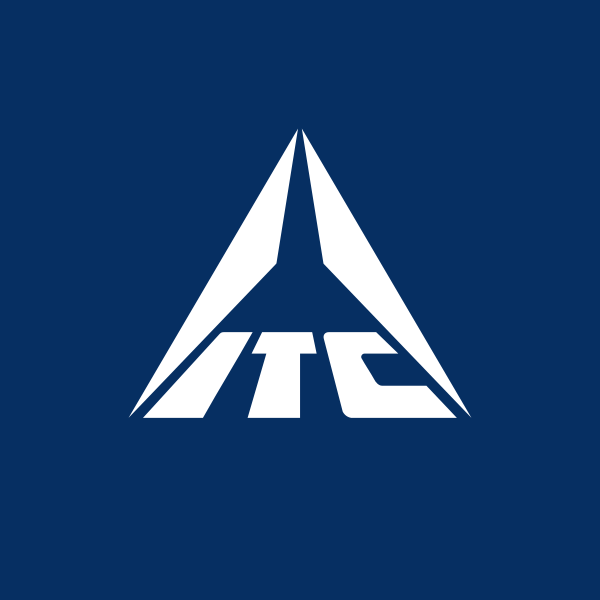
The Success Story of ITC
- Other (Business & Information)
It would have been difficult for the sole distributor of a tobacco firm in early autumn of 1910, sitting in the cramped quarters of his humble office in Calcutta, to even begin to comprehend what history would have in store for the company he represented.
Background and Evolution
Imperial Tobacco Company of India Limited was the name under which ITC was formed on August 24th, 1910. The name of the Company was changed to India Tobacco Company Limited in 1970 and subsequently to I.T.C. Limited in 1974 as the ownership of the Company gradually became Indian.
In appreciation of the Company's diverse portfolio of companies, including Fast Moving Consumer Goods, which includes foods, personal care products, tobacco and cigars, branded apparel, stationery and school supplies, incense sticks, and safety matches, Information technology, hotels, paperboards and specialty papers, packaging, agribusiness, and specialty papers.
The Company is now known as ITC Limited.
ITC has undergone an astonishing metamorphosis over the past century, growing from a modest outpost of an international firm with a single product to one of India's most valuable and recognised multi-dimensional and multi-industry organisations. Only a select few businesses have survived a century-long voyage while still being modern, pertinent, and competitive.
One such company is ITC. ITC's top line increased over the past 40 years from Rs 145 crore in 1970 to over Rs 48,000 crore (Rs 480 billion) in 2014; profit after tax increased from Rs 4 crore to over Rs 8,700 crore (Rs 87 billion); and market capitalization increased from roughly Rs 35 crore (Rs 350 million) to over Rs 2,75,000 Crore (Rs 2750 billion).
ITC's portfolio today includes over 1,500 products in 20 categories, up from its original one-product category. In contrast to the six units that were established in the first 50 or so years, ITC's products are now produced in a network of 100 factories. The fact that ITC now has a significant presence in each of the three sectors—agriculture, services, and manufacturing—is a cause for pride.
Cigarettes: Given its size and the amount of money it brings in for the organisation, the cigarette industry deserves special recognition among all the others. In Asia, where 275 million people consume tobacco products and the region's overall cigarette business is estimated to be valued close to $11 billion, ITC Ltd sells 81 percent of the Bidi cigarettes.
Wills Navy Cut, Gold Flake Kings, Gold Flake Premium lights, Gold Flake Super Star, Insignia, India Kings, Classic, 555, Silk Cut, Scissors, Capstan, Berkeley, Bristol, Lucky Strike, Players, Flake, and Duke & Royal are some of the best-known cigarette brands produced by ITC.
Other Companies
Kitchens of India, Aashirvaad, B natural, Sunfeast, Candyman, Bingo!, and Yippee! are some of ITC's top food brands. FMCG. With sales of nearly Rs. 4,600 crores in branded foods in 2012–13, ITC is India's top vendor. It is found in 6 different food industry sectors, including dairy products, confectionary, ready-to-eat meals, and snack items. Perfumes, haircare, and skincare are examples of personal care products. Fiama Di Wills, Vivel, Savlon Soap & Handwash, Essenza Di Wills, Superia, and Engage are prominent brands.
Hotel industry: ITC Hotels is known for frequently hosting visiting royalty and world leaders. The second-largest hotel chain in India is ITC Hotels, which operates more than 100 hotels under brands like WelcomHotel. Additionally, ITC is the sole franchisee for two Sheraton International Inc. brands in India. Its subsidiaries own and run the Fortune Park Hotels and WelcomHeritage Hotels brands in the hotel industry. ITC Hotels consistently ranks among the top Asian employers in the hospitality industry.
ITC's has established itself as one of India's top corporations in the agricultural industry. The rural agricultural industry has undergone a revolution and transformation because to its strong and enduring farmer ties. A competitive and effective supply chain that generates and distributes enormous value across the agricultural value chain has been developed thanks to a special rural digital infrastructure network, in-depth knowledge of agricultural methods, and extensive research. The finest Indian feed ingredients, food grains, marine products, processed fruits, and coffee are sourced by ITC, one of the biggest exporters of agricultural goods from the nation. Over 4 million farmers have profited from its ground-breaking e-Choupal.
Paperboard and Speciality Papers: The ITC Paperboards and Specialty Papers Division sells goods including specialty paper, graphics, and other paper under the ITC name. ITC products like Classmate are renowned for their high quality. Additionally, stationary brands like Classmate, PaperKraft, and Color Crew are included. Classmate, which debuted in 2003, eventually became India's top notebook brand in 2007.
ITC operates through its wholly owned subsidiary ITC Infotech India Limited in the information technology sector. It is currently one of India's mid-tier IT companies with the fastest growth rates. In order to develop the "products of tomorrow," ITC has also made considerable investments in the establishment of Bengaluru's top-notch ITC Life Sciences & Technology Centre.
It is the goal of the Management and knowledgeable leaders who have served ITC at various stages during its history. The essential identity of the organisation was its primary status as a societal change agent, but there was a strong desire and ambition to establish and maintain ITC as a "institution." This vision placed equal importance on increasing "shareholder value" and "national worth."
As important to this goal as increasing efficiency and generating returns on deployed resources were contributions to raising the overall value chain's productivity and achieving stakeholder expectations.
This vision, which served as a source of personal motivation for other businesses, has endured for the past 40 years and has grown into a powerful motivator for
